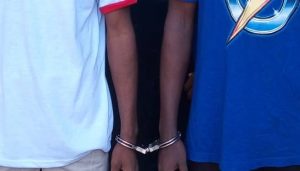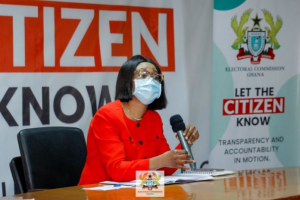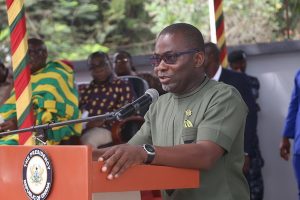The Executive Director of the Human Rights and Governance Centre, Mr. Martin Kpebu, says the case between the Rastafarian boys and Achimota School was “too plain” for a court dispute.
The two boys, Tyrone Marhguy and Oheneba Nkrabea, had been denied admission into the school for refusing to cut off their dreadlocks which is in conformity with their Rastafarian religion.
The Private Legal Practitioner, Martin Kpebu, speaking on Eyewitness News after the Human Rights Court 1 Division of the High Court in Accra ordered Achimota School to admit the boys, argued that the “constitution is clear in Article 28 and 21 that you don’t use somebody’s religion to discriminate against the person. Article 21 is clear that there is freedom of religion.”
He added that “for the avoidance of doubt, Article 28 makes it clearer that don’t deprive a child of education, medical treatment or any social or economic benefit on grounds of the religion of the child.”
Mr. Kpebu commended the High Court for ruling in favour of the Rastafarian boys, stating that “it is good that the judge has upheld the law.”
On the issue of uniformity in schools, Mr. Kpebu said “the law for good reasons has made a religious exception.”
He further debunked conclusions on uniformity which were premised on a Jamaican court case where the court ruled against the parents of a dreadlock student who had argued that their ward could “put on dreadlocks for fashion and self-expression”.
Martin Kpebu says the Rastafarian boys’ case against Achimota was solely on religious grounds, hence “if someone comes [with the dreadlocks] for religious purposes but it is not what I like personally, that is what we have subscribed to; that means our constitution gives that freedom even though sometimes we have personal opinions.”
“Let’s allow the constitution to lead,” he advised.
The Judgement
Delivering the judgment on the case of two Rastafarian boys, Justice Gifty Agyei Addo held that the Attorney-General failed to provide a legal justification as to why the rights of the two Rastafarian students to education should be limited on the basis of their dreadlocks.
Tyrone Marhguy and Oheneba Nkrabea were denied admission into Achimota School for refusing to shave off their dreadlocks notwithstanding that they had passed their qualifying examinations, and, had been selected into the school through the computerized placement system.
The school through the Attorney General argued in court that allowing the students into the school will have dire consequences on the school’s discipline, health, tradition, and community cohesion.
The Attorney General subsequently argued in Court that the Rastafarian students had not even completed or returned their acceptance of admission forms and could thus not be deemed to have been denied the admission.
But for the students, their parents, and lawyers, this was simply a case of a breach of fundamental rights on the basis of their religion and religious practices.
Justice Gifty Adjei Addo disagreed with the submissions of the Attorney and granted all the reliefs separately sought by the students, save for the relief of compensation in the case of Tyrone Marhguy.
According to Justice Addo, it is preposterous for the Attorney General to have even suggested that the two were not students in the first place.
Justice Gifty Adjei Addo consequently directed Achimota School to admit the two Rastafarian students.







